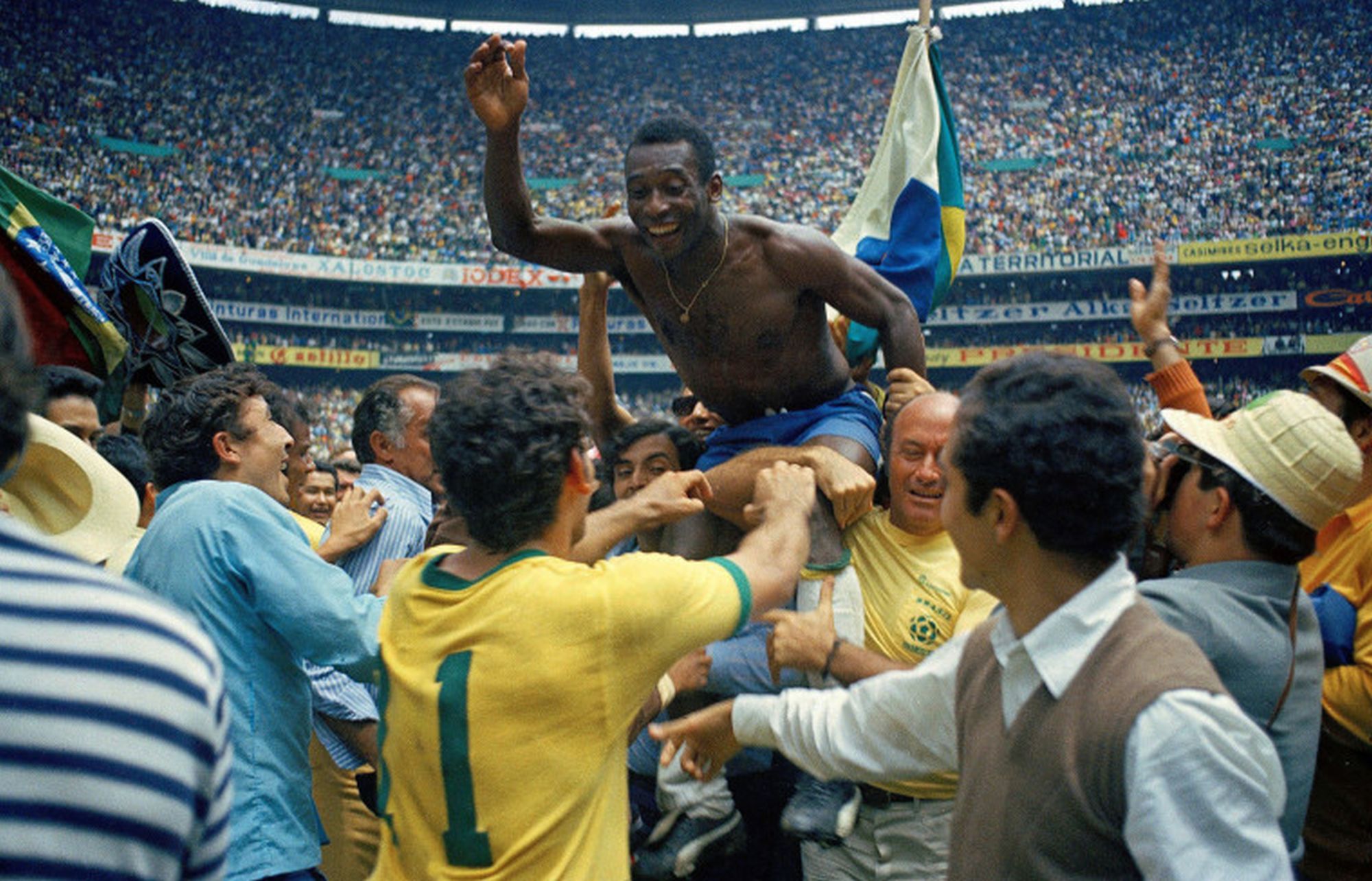Experts have long been warning that a sell-off of Brazilian talent is seriously damaging domestic soccer. Restoring “the beautiful game” will be difficult, if not impossible.
Brazilian soccer has seen better days. The country’s Olympic team failed to qualify for Paris 2024, while Brazil’s full men’s national team, the “Seleção,” are languishing in sixth place in the South American World Cup qualifying standings. Utterly unacceptable for a team who have won a record five World Cups.
On Saturday, Dorival Junior became the fifth man in the past two years to take his place in the Seleção’s coaching zone — for their friendly against England at Wembley. It seems as if the record-breaking world champions have lost their soccer identity.
Former Brazilian striker Grafite, who led Wolfsburg to their sole Bundesliga title in 2009, said the “jogo bonito” — the “beautiful game” for which former Brazilian stars such as the late Pelé were admired — is no longer recognizable.
“This type of Brazilian soccer no longer exists today,” said Grafite, who, as an expert for Globo TV, is a keen observer of the development of soccer in his homeland.
Transfers abroad
It’s not as though Grafite was the first to raise the alarm. After the 2014 World Cup when the Seleção were humbled 7-1 by the eventual world champions Germany in the semifinals, Mario Zagallo, a World Cup winner as both a player and coach, warned of a sell-out of home-grown talent. Zagallo warned that Brazilian soccer was in peril of losing its identity as a result.
It’s been around 20 years since a change in European law effectively made it easier for non-EU citizens to ply their trade in Europe. This sparked a wave of transactions that continues to this day. Brazil now loses hundreds of soccer to the rest of the world every year.
“This affects the development of the identity of Brazilian soccer,” historian David ‘Dere’ Gomes comments. Gomes has been researching the history of soccer in Rio de Janeiro for years. The most talented players, those capable of deciding a game in the Brazilian way, are being deprived of the time needed to sufficiently develop their talent in their own country, Gomes said.
The Brazilian way is, among other things, the spectacular dribbling that can lift fans out of their seats. It’s a big part of the country’s soccer identity.
Other problems
The focus is usually only on the top transfers of exceptional talents such as Vinicius Junior in 2018 or Endrick to Real Madrid last summer. However, the Brazilian league is constantly losing substance and quality, not just at the top of the talent pool. Many transfers go largely unnoticed.
One could compare this to the exploitation of raw materials. The only difference is that it is not copper, oil or lithium that the rich industrialized countries are buying up, but soccer talent.
“It’s normal for Brazilian players to adapt to the style of European soccer, but Brazil hasn’t kept pace,” Grafite said. Soccer players who play in Brazil have a different rhythm and speed than those who play in Europe, the now 44-year-old added.
The game simply has a different dynamic overseas. These two identities then clash within the national team at a Copa America or a World Cup and lead to coordination problems.
“This was quite evident at the last World Cup,” Grafite noted.
Premier League success
The Premier League is currently considered the measure of all things in club soccer worldwide.
“But how can the Premier League be the biggest league in the world if England has neither the best players nor a tradition of winning the World Cup?” asked historian Gomes rhetorically.
“It only works by importing players,” he answered. “Talent from Latin America and Africa. And Brazil is one of the biggest treasure troves for this talent. Imagine how strong a Brazilian soccer league would be if it had players who earn their money in England, like Douglas Luiz, Lucas Paqueta, João Gomes, Bruno Guimarães, Richarlison — or in other European leagues, like Vinicius Junior or Rodrygo.”
Dere Gomes is well aware that with billions of euros changing hands every year, reversing this trend would be a very tall task indeed.
“Building a strong league in Brazil would require good club management coupled with financial fair play,” he said. “You’d also need to find a way of reducing the clubs’ dependence on large revenues.”
And, he said, politics would also have an important role to play.
“We need legislation that protects the clubs that develop [talent].”
DW




